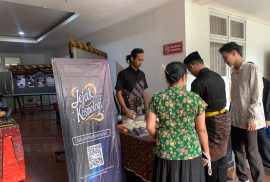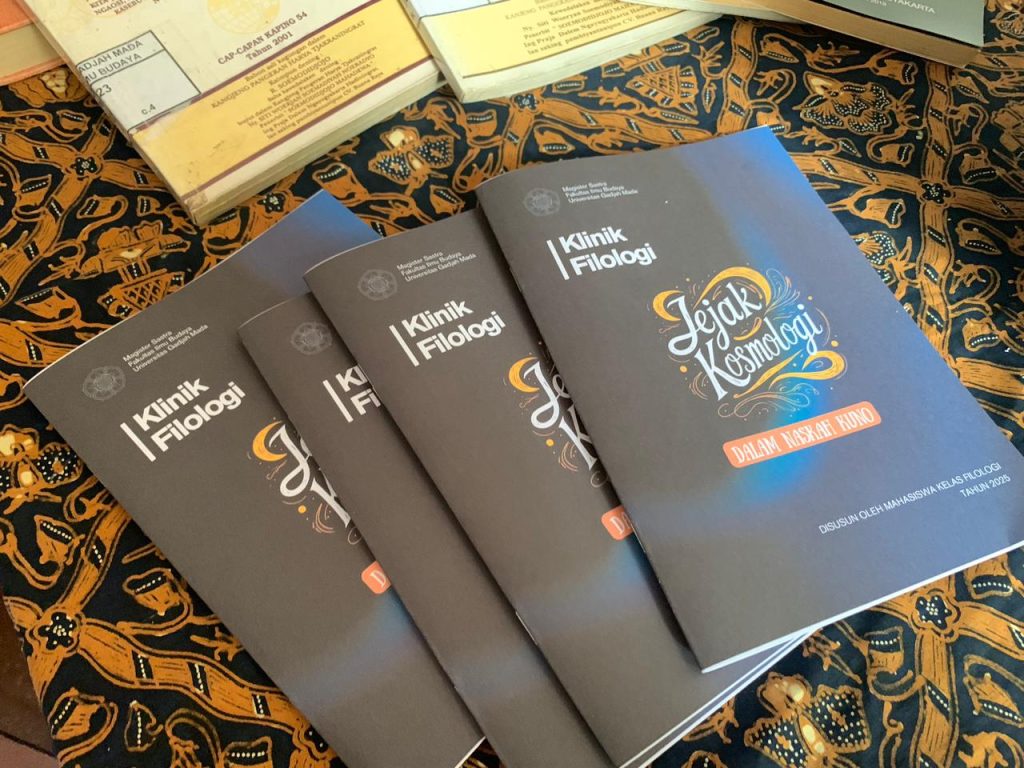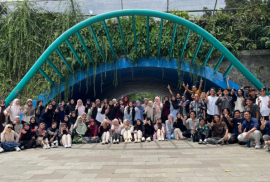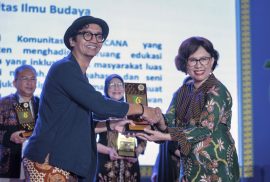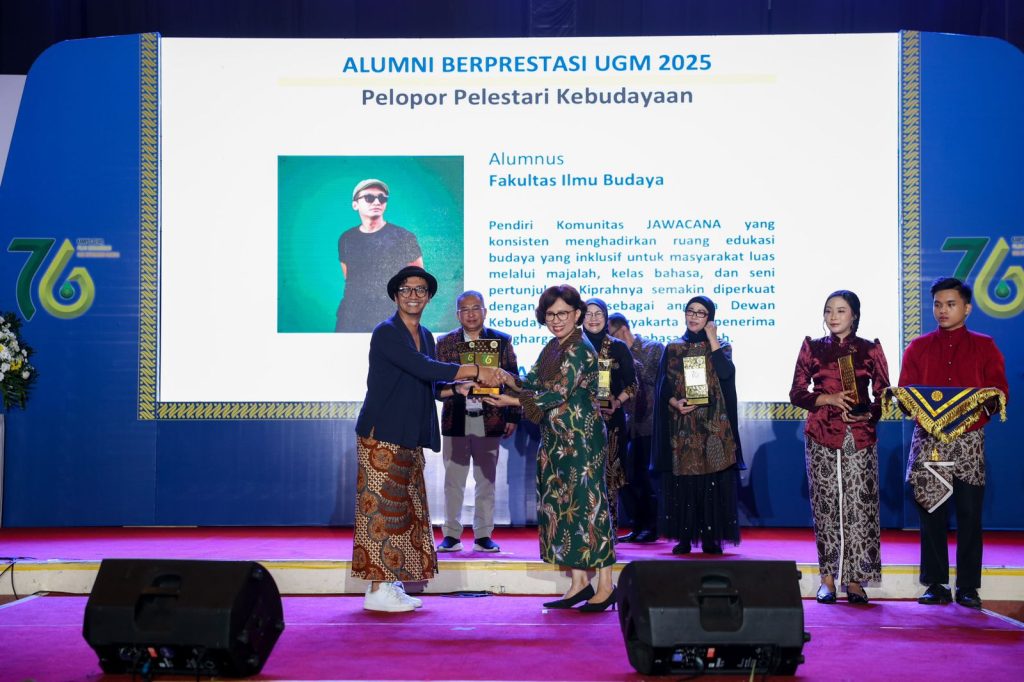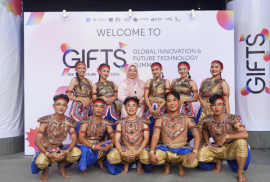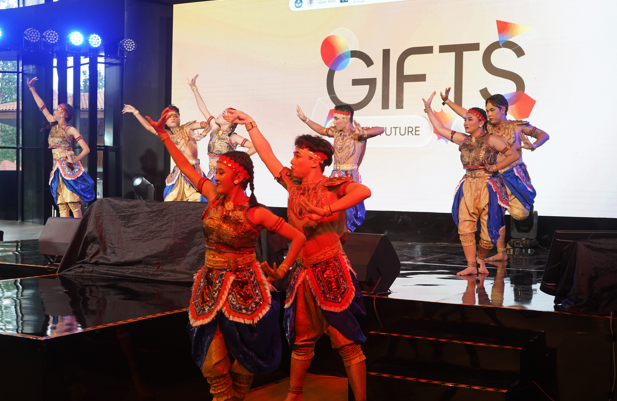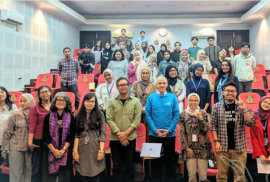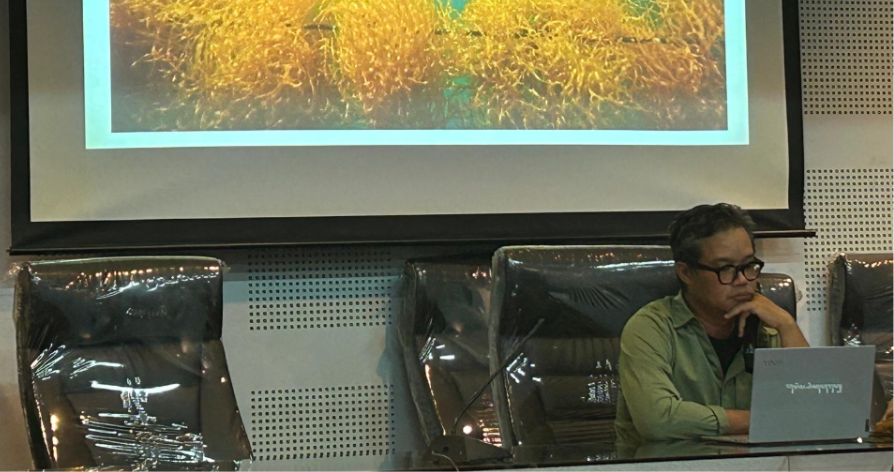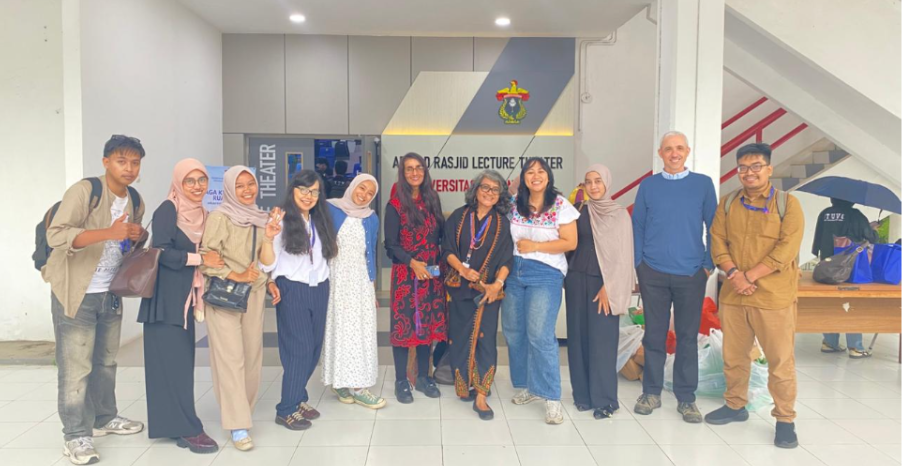Yogyakarta, 5 December 2025 – Ten graduate students of the Master of Literature Program at the Faculty of Cultural Sciences held a Philology Clinic Exhibition themed “Tracing Cosmology in Ancient Manuscripts.” This exhibition is part of an academic activity guided by lecturers of the Philology Program: Prof. Dr. Aprinus Salam, M.Hum., Prof. Dr. Sangidu, M.Hum., and Dr. Arsanti Wulandari, S.S., M.Hum.
Cosmology, as a way for humans to understand the origins, structure, and order of the universe, has long served as a fundamental aspect of cultural development. Long before the emergence of modern science, the peoples of the Nusantara had developed their own cosmological perspectives and recorded them in various Arabic, Javanese, and Malay manuscripts. This knowledge was passed down across generations as an integral part of the region’s intellectual tradition.
Through the Philology Clinic activities, the students aim to create a space for disseminating and reintroducing cosmological insights found in ancient manuscripts. These manuscripts not only contain stories or moral teachings, but also reflect the worldview, knowledge structures, and belief systems of communities in the past.
In today’s modern world—where rational knowledge is often separated from spiritual experience—this exhibition invites the public to revisit how past societies understood the universe holistically, combining empirical, symbolic, and practical experiences in everyday life. As such, the exhibition serves as a bridge between the past and the present, opening new avenues for appreciating the intellectual heritage of the Nusantara.
This exhibition aligns with the commitment to sustainable education as outlined in the Sustainable Development Goals (SDGs), particularly SDG 4 on Quality Education. Through manuscript preservation, the strengthening of cultural literacy, and the advancement of humanities research, this activity supports the creation of inclusive, high-quality education and promotes lifelong learning. Additionally, this initiative reflects ongoing efforts to safeguard cultural heritage, in line with SDG 11 on Sustainable Cities and Communities, which emphasizes cultural preservation as a key component of sustainable community development.
[Public Relations of FIB UGM, Alma Syahwalani]

